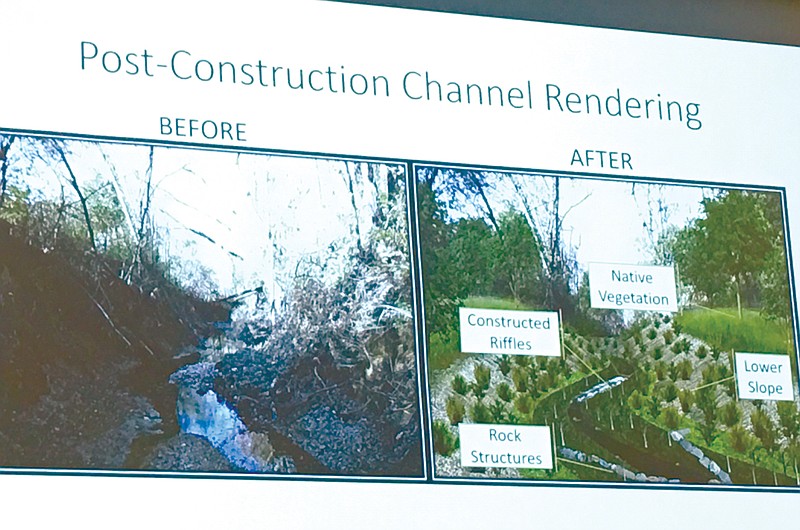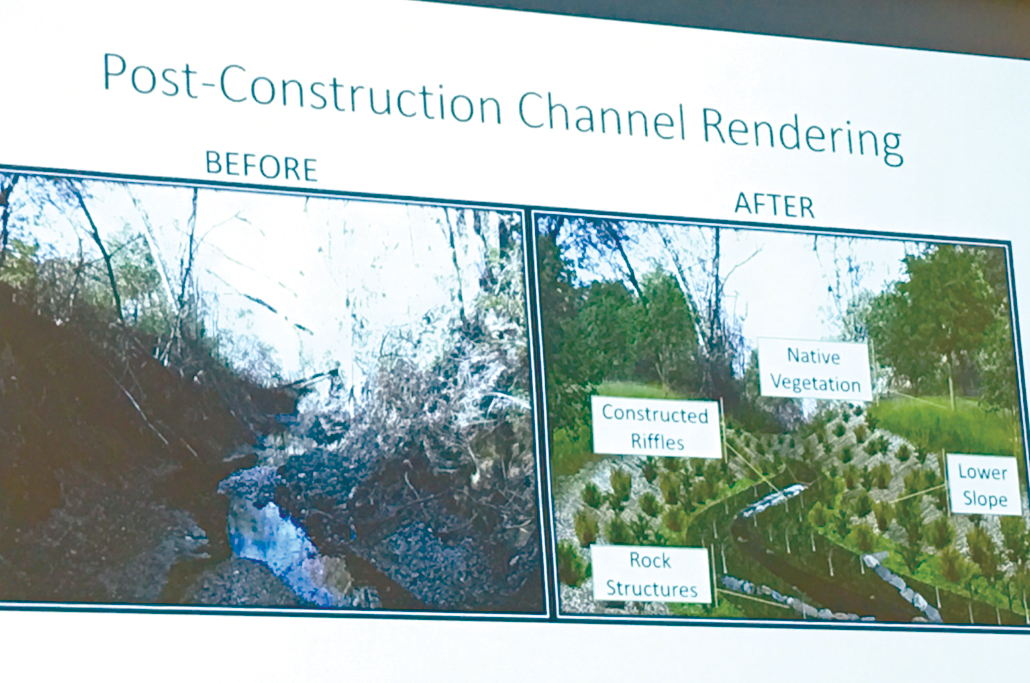The stream dumps a significant amount of sediment into South Chickamauga Creek north of the intersection of Shallowford Road and Wilcox Boulevard.
City Engineer Bill Payne recently briefed the City Council on the degraded state of the stream and a proposal to stabilize the banks with log and rock structures, new vegetation and a raised stream bed. Images taken during site inspections revealed banks undermined by slicing flows, leaving trees dangling precariously over a stream bed cut deep by fast-moving water.
Not only has the scouring current lowered the stream bed by 20 feet in some sections of the quarter-mile project area, it "has degraded all the habitat in the area," said Payne.
The council is scheduled to vote Tuesday on a $989,621 agreement with Curl Construction and Excavating of Wartrace, Tenn., to oversee the project.
Curl Construction was within 1 percent of the project estimate, while the second-lowest bidder was 9 percent higher than the estimate, according to a recommendation letter from engineering consultant Justin Bolender.
Although Curl Construction has never worked for Chattanooga, the company has a good reputation and experience with in-stream work, retaining walls and drainage stabilization techniques, Bolender said.
Payne said the project comes about because of Chattanooga's 2013 agreement with the U.S. Environmental Protection Agency to reduce or, where possible, eliminate raw sewage overflows into the Tennessee River.
While the proposed restoration is not actually part of the $250 million program to rehabilitate the city's wastewater system over 17 years, it is an alternate way of paying for an $800,000 penalty for overflow violations.
"Instead of us writing a check [for] $800,000 to the EPA, which would just wander into federal government coffers, we would spend those dollars on a project that would have some benefit within the city of Chattanooga," Payne said.
He said the project had to meet two criteria for EPA approval: It could not be required as part of Chattanooga's agreement with the EPA, or otherwise be mandated, and it had to provide an environmental benefit.
If approved, much of the work will take place in the dry summer, with plantings to follow in the appropriate season, said Payne.
Contact staff writer Paul Leach at 423-757-6481 or pleach@timesfreepress.com.

